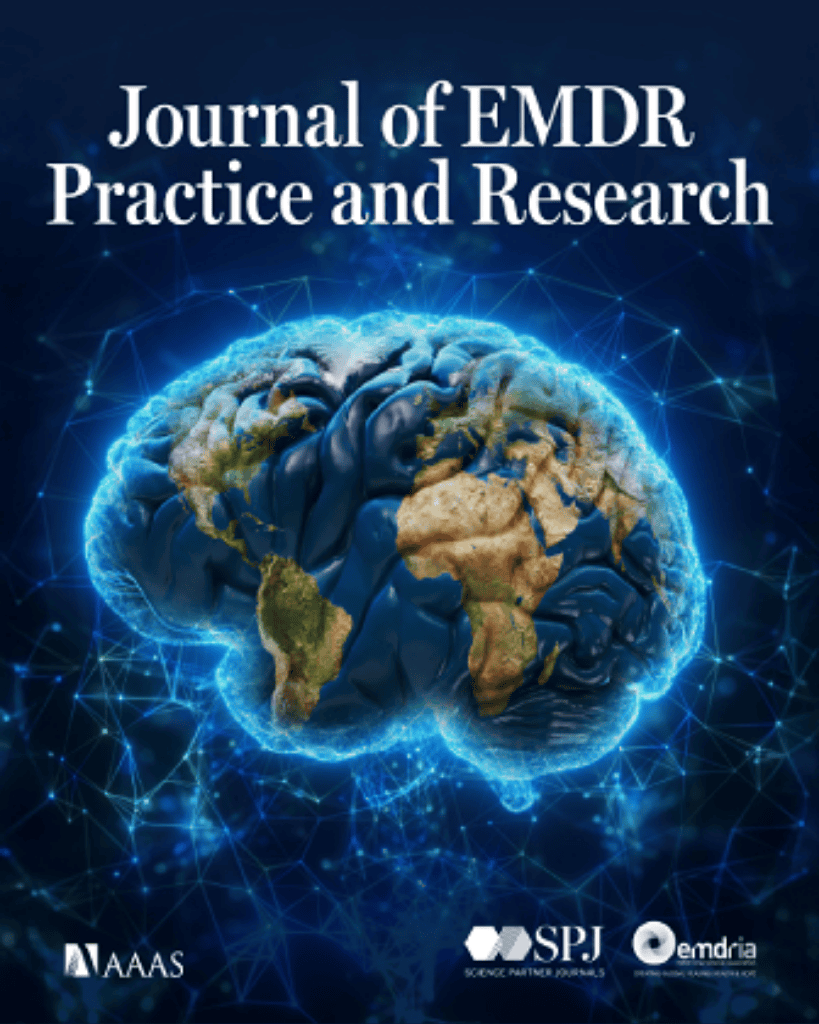
Tap Into It collection
Discover professionally curated content such as:
- Practice resources (toolkits, infographics, videos)
- Treatment guidelines
- Research articles (Journal of EMDR Practice and Research, and links to other publications)
Includes a mix of open access, members-only, and links to external content.
Or, search the full EMDRIA Library.
Search the Tap Into It Collection
The ‘reducing psychosis risk by targeting trauma’ trial: Protocol of a feasibility randomised controlled trial of trauma-focused cognitive behavioural therapy and eye movement desensitisation and reprocessing therapy for people with at-risk mental states (Early Intervention in Psychiatry)
This trial aims to evaluate the feasibility of conducting a future randomised controlled trial (RCT) to determine the efficacy of EMDR therapy and trauma focused cognitive behavioural therapy (TF-CBT) in people with at-risk future psychosis.
A preliminary efficacy study of eye movement desensitisation and reprocessing therapy in reducing epilepsy-related anxiety (Epilepsy & Behavior)
This study examined whether EMDR therapy reduces anxiety in people with epilepsy-related anxiety.
Remote eye movement desensitization and reprocessing for posttraumatic stress disorder in adult congenital heart disease: A clinical case study (Clinical Case Studies)
This study describes the remote EMDR therapy treatment for a patient with adult congenital heart disease (ACHD) and PTSD to underscore the value of trauma-informed care within cardiac services.
Investigation of the effectiveness of an EMDR-focused intervention program aimed at enhancing self-regulated learning on self-regulation and trauma symptoms among university students with academic-related traumatic experiences (Turkish Journal of Traumatic Stress)
This study investigated the effectiveness of an EMDR based intervention program for university students with school-related traumatic experiences.
Eye movement desensitization and reprocessing therapy in persons with personality disorders: A randomized clinical trial (JAMA Network Open)
This randomized clinical trial evaluated the effectiveness of EMDR therapy in reducing personality disorder (PD) symptoms compared with a waiting list, regardless of PTSD status.
Impact of eye movement desensitization and reprocessing (EMDR) on the severity of anxiety among physicians and nurses working in intensive care units (Preprint, BMC Nursing)
This study examined the effect of EMDR therapy on the severity of anxiety experienced by physicians and nurses employed in the ICUs of Ganjavian Hospital in Dezful, Iran.
Personal Experiences of EMDR Therapy within Secure Services (Journal of EMDR Practice and Research)
This study aimed to develop an understanding of personal experiences of EMDR therapy within secure services or forensic populations.
Posttraumatic stress disorder interventions for children aged zero to six years: A scoping review (European Journal of Psychotraumatology)
This review seeks to explore and synthesize the current literature on PTSD interventions for children aged zero to six years to inform the treatment and future research on effective, age-appropriate treatments.



